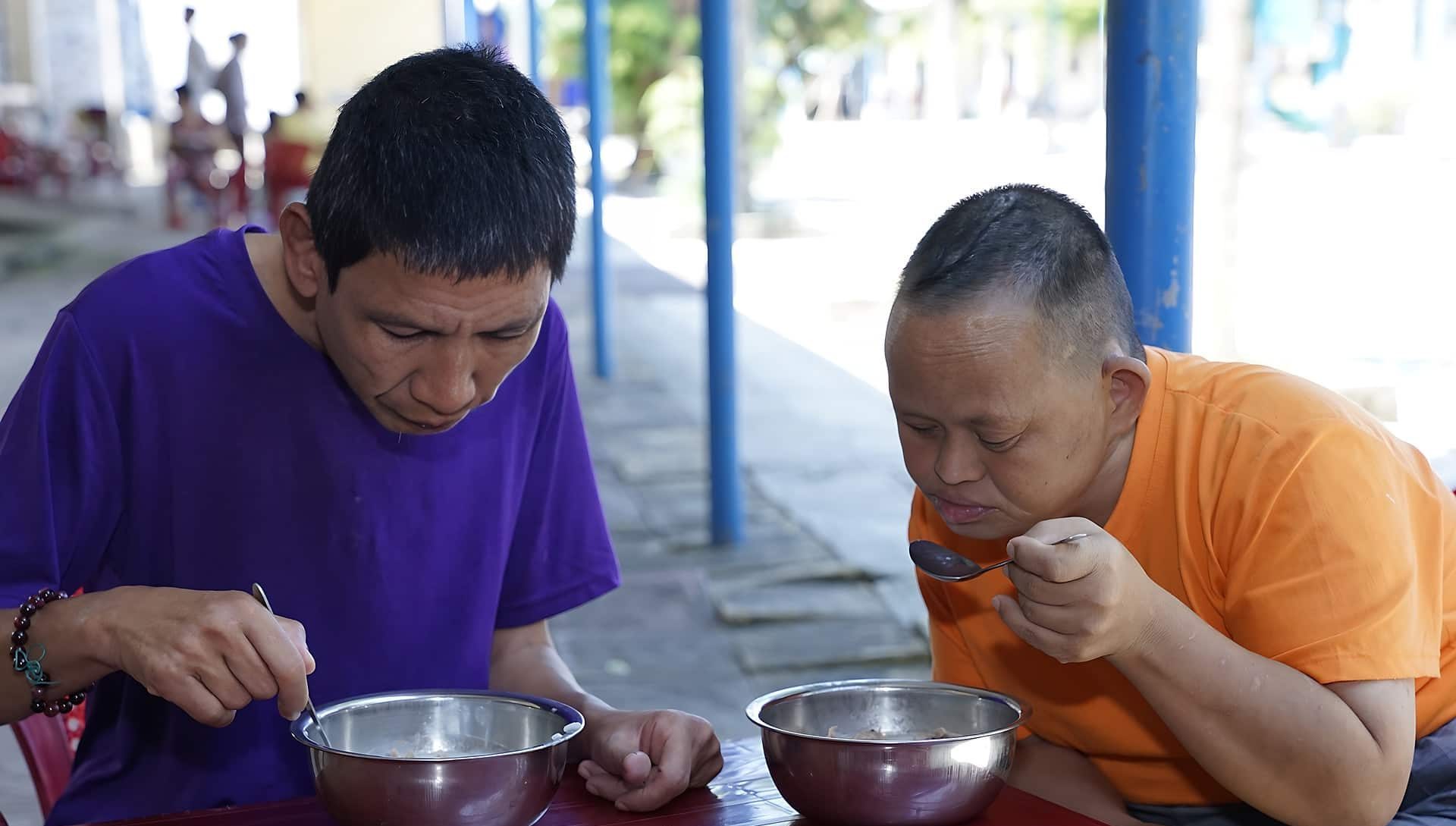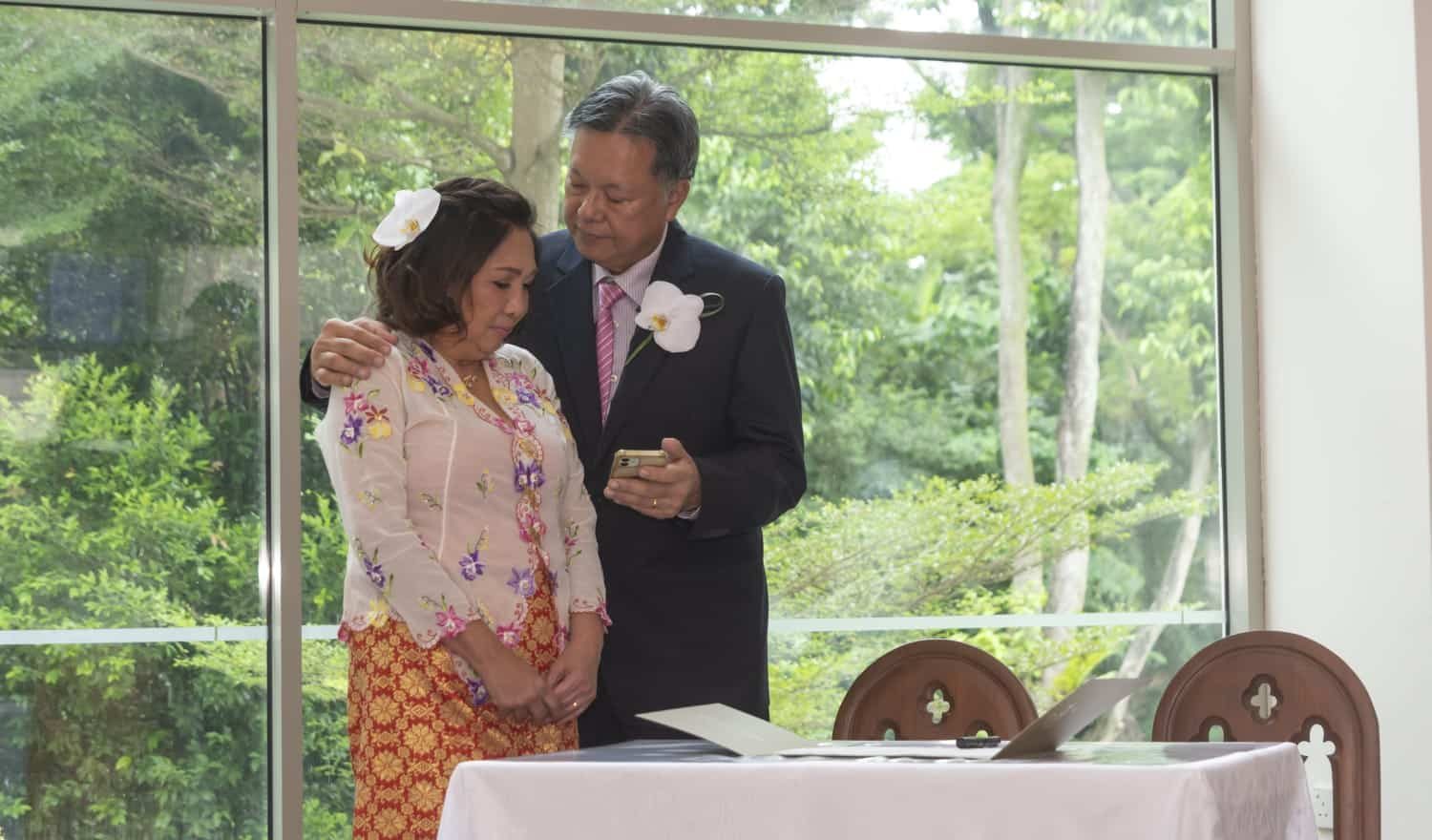How can churches include persons with disability? KIN survey offers insights and partnership
by Christine Leow // May 16, 2023, 3:56 pm

There are 26 churches with disability ministries serving some 1,000 Persons with Disability (PWDs). But there are more than 10,000 PWDs in Protestant churches. Image by Minh Châu Ngọc from Pixabay.
Thomas (not his real name) is eight years old but his gait is still unsteady. He could not walk till he was four. Behind his colourful glasses, his eyes have difficulty focusing.
But his parents are thankful that he can see at all because doctors had told them he could be blind. He is a happy child but it is clear he is behind his peers in Sunday School.
Though Thomas’ parents grew up in the same church, they chose to take Thomas to another church last year – one that has a Sunday School for special needs children.
KIN aims to help churches fulfil their “missional effort to bring the Gospel of Jesus Christ to people with disability”.
Not every church in Singapore has a ministry for Persons with Disability (PWD). Not every church is able to have one.
It was to support churches in welcoming and discipling PWDs that Koinonia Inclusion Network (KIN) commissioned the inaugural Singapore Disability Ministry Survey (SDMS 2023). KIN is a disability mission organisation.
The goal of SDMS 2023 was to “obtain a clearer understanding of the state of Christian ministry for people with disability among Protestant churches in Singapore”.
This would allow churches to make more informed choices about how to develop their disability ministries so they can fulfil their “missional effort to bring the Gospel of Jesus Christ to people with disability – a precious group of individuals made in God’s image”.
Here are some of the findings of the SDMS 2023.
Disability ministries
Of the Singapore student population, a little over two in every 100 (2.1%) have a disability. This number is likely to increase.
Students with Special Education Needs (SEN) rose about 5% in the last three years, according to the Enabling Masterplan 2030 (EMP2030) released in August 2022, which outlined the vision of a disability-inclusive Singapore,
Among those aged 18 to 49 living in Singapore, 3.4% have a disability. The percentage nearly quadruples to 13.3% for those aged 50 and above.
85% of churches with disability ministries cited discipleship of PWDs as the goal of their ministries.
KIN identified 26 churches with disability ministries. Of these, 20 participated in the survey, which spanned different denominations – Anglican, Bible-Presbyterian, Brethren, Methodist, Presbyterian and Independent. The majority (85%) have at least 500 congregants, while six in 10 have at least 1,000 congregants.
Among them, they had over 40 ministries serving about 1,100 PWDs. Of the ones studied, 45% were already inclusive, where PWDs were able to fully participate with the community.
Another 11 churches with no disability ministries took part in a survey designed for churches without disability ministries. A significant number (67%) responded that they want to nurture an inclusive community.
Main challenges
Most of the churches with disability ministries (85%) cited discipleship of PWDs as the goal of their ministries. In terms of the challenges they faced, ministry leaders cited:
- church leadership
- congregation
- PWDs and their families.
With church leadership, not appreciating the importance of inclusion and not understanding PWDs were the challenges most often cited. As a result, PWDs are not featured in the church’s ministry strategy and are seen instead as a potential problem rather than people who need ministry.
The fear of rejection and past hurts made families of PWDs less receptive to church activities.
Challenges posed by the congregation were mostly the result of a lack of understanding of PWDs, leading to discomfort and fear when interacting with them. The congregants were also not always receptive to change or to disability ministries, and often lacked the skills to serve in this area.
With families with PWDs, the fear of rejection and past hurts made them less receptive to church activities even when these were of benefit. The difficulty of bringing PWDs to church was an additional issue.
The unpredictability of PWD behaviour poses challenges, too. Aggression, meltdowns, limited intellectual ability and limited adaptability make it hard for church volunteers to help.
Churches without disability ministries said they did not have such ministries because they lacked manpower and critical mass of PWDs.
Needs revealed
1. More disability ministries
Of the estimated over-400,000 Protestants in Singapore, about 10,000-plus have a disability that might require the refuge of a disability ministry. Just 10% of this number is currently being served.
There is a need not just for more disability ministries but more diverse ministries for PWDs.
Meanwhile, there is a rapid rise of persons with dementia in Singapore. Some estimates put the current statistic at one in 10 among persons above the age of 60. This number will only increase as the population ages.
PWDs are an “untouched mission field for churches in Singapore”. There is therefore a need not just for more disability ministries but more diverse ministries for PWDs.
For now, the ministries are largely either church services or Sunday school-like programmes. But there is a need for family support, youth ministries and cell groups for PWDs, as well as outreach efforts.
2. More equipping
Prior to KIN establishing its training programmes, 40% of disability ministry leaders who responded to the survey had not received any training. A further 30% only received on-the-job training.
Just 30% of leaders had received formal training of any kind.
The survey revealed that there was a need for a younger generation of leaders to succeed the current ageing ones.
Several disability ministry leaders also wanted greater networking between churches for more collaboration, best-practice sharing and mutual encouragement.
3. Further mobilisation of volunteers
Disability ministries often require a lot of manpower. Attracting people to serve in this area is a major concern both for churches with, as well as those without disability ministries.
Given the unique needs and challenges of the ministry, training of new volunteers was one area of need mentioned.
Strategies to help churches
The SDMS 2023 articulated three strategic areas that KIN will focus on in the years ahead to help churches in their disability ministries.
1. Support for new disability ministries
There will be a new training programme for churches interested in growing their existing Sunday Schools into inclusive programmes. Developed for superintendents and teachers, it will show them how children with mild disability can meaningfully participate in a church’s Sunday school.
KIN will refine its consultancy services to ensure churches are better supported in their inclusion journeys. This would include preaching to generate awareness, bespoke workshops, Bible study materials to train church members, and even the provision of reference materials such as KIN’s ‘Disability Ministry in Asia’ series.
To address the needs of a growing number of persons with dementia, KIN can provide resources to churches as well as explore models for ministry.
2. Ministry leader development
There will be a new community of practice (COP) that will meet on a regular basis, co-led by KIN and disability ministry leaders.
Masterclasses by disability experts and sharing sessions by ministry leaders will be organised to facilitate collaborations.
3. Help to raise volunteers
KIN has also established a Memorandum of Understanding (MOU) with the Western Theological Seminary’s (WTS) Center for Disability and Ministry (CDM), which conducts the Graduate Certificate in Disability and Ministry (GCDM) online. This will help equip volunteers in disability ministries.
To make the course affordable, KIN has set up the Leaena Tambyah Scholarship for Disability Ministry (LTSDM).
RELATED STORIES:
How do we enable differently abled persons to be full participants in the community of faith?
Helping children with special needs find their place in the world
We are an independent, non-profit organisation that relies on the generosity of our readers, such as yourself, to continue serving the kingdom. Every dollar donated goes directly back into our editorial coverage.
Would you consider partnering with us in our kingdom work by supporting us financially, either as a one-off donation, or a recurring pledge?
Support Salt&Light


